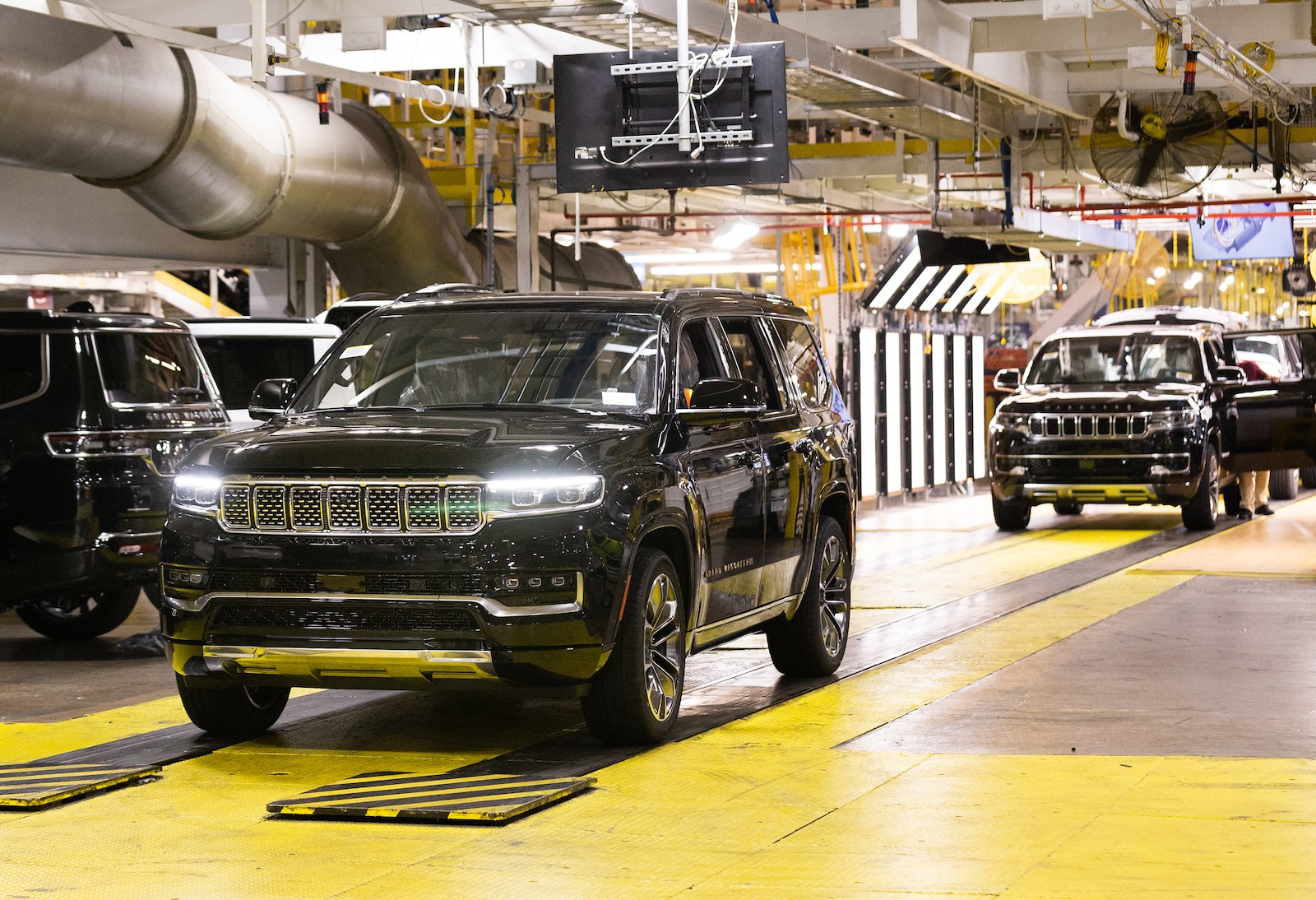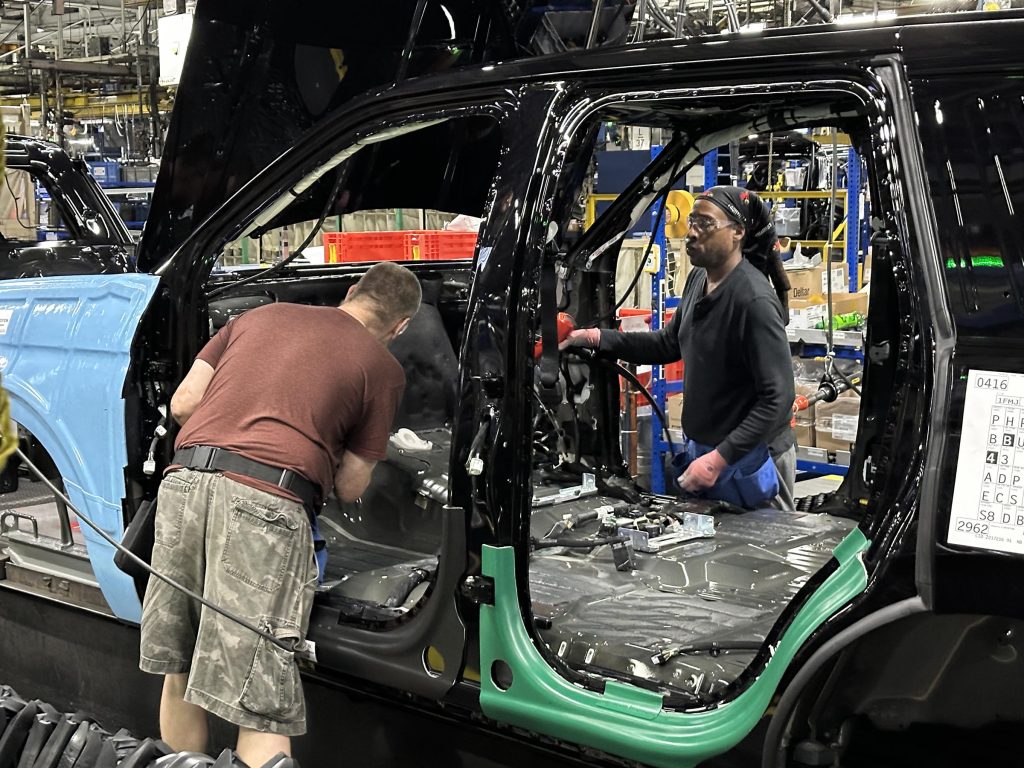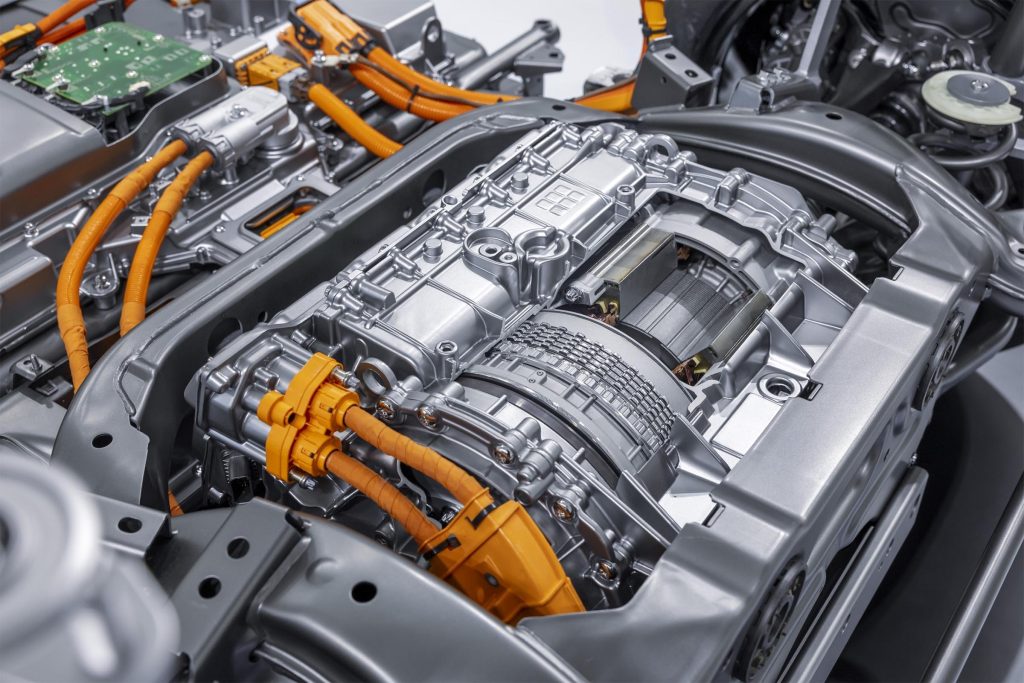Stellantis has temporarily halted production at a Jeep plant in Warren, Michigan, even as three Ford plants sit idle. All face a shortage of aluminum due to a fire at a supplier plant. Meanwhile, automakers are beginning to fret there could be more closures coming across the industry due to semiconductor shortages – repeating a crisis that cast the industry millions of vehicles in lost production during the COVID crisis. Headlight.News has more.
Production of the newly updated Jeep Grand Wagoneer has been put on hold until November 3, the automaker announced, due to a shortage of critical aluminum parts.
The Stellantis brand isn’t the only one affected by a fire at a key supplier, however. Three Ford Motor Co. plants have also been idled due to the disaster that struck the hot mill at a plant operated by supplier Novelis, Inc. in Oswego, New York. It produces the metal used by Ford and Stellantis for a variety of aluminum parts and components.
But this may be just the start of problems for the auto industry. In response the Trump administration’s trade war, China has taken steps limiting access to rare earth minerals needed by the auto industry for the electric motors used in all vehicles. And the Asian nation is now involved in another dispute that could disrupt supplies of critical semiconductors, potentially creating shortages similar to those that crippled automotive production throughout the COVID pandemic. Adding to the crisis: tariffs that are raising prices and disrupting long-established supply chains.
A once in a lifetime problem
Compounding the problems facing the auto industry: a trade war and other moves by Pres. Donald Trump and the Republican-controlled Congress. Tariffs
have already resulted in an estimated $11 billion in added costs for the industry, just for autos and auto parts imported from Canada and Mexico, according to a study by the Anderson Economic Group. The tariffs have also made it more difficult for automakers and suppliers to make plans and follow through with investments, noted RJ Scaringe, CEO of Rivian.
Meanwhile, federal tax credits of up to $7,500 for EV sales have been eliminated. And the spending bill approved by Congress last July has eliminated credits for domestic mineral production that, ironically, could help reduce U.S. dependence on China and other sources of critical minerals.
Add disruptions to the supply chain and, “The confluence of issues is once in a lifetime,” Sam Fiorani, lead analyst with AutoForecast Solutions, told the Wall Street Journal. “We haven’t seen this happen before.”
A multitude of challenges
This is actually the second time Jeep production has been impacted by a fire. A blaze at a CSP component plant in Carey, Ohio disrupted operations at the automaker’s Toledo Assembly Complex in August and workers have since been clocking overtime in a push to catch up. The latest fire hit the Warren, Michigan operation just as production of the newly refreshed Grand Wagoneer ramps up.
Ford was the first manufacturer to feel the brunt of the latest incident at the Novelis aluminum factory. Ford has been vague about detail, only indicating three plants have faced downtime. Sources, however, indicate the big Kentucky Truck Plant near Louisville is one of those impacted, affecting production of the high-profit Lincoln Navigator and Ford Expedition models, while the nearby Louisville Assembly Plant was also hit.
The industry, more broadly, is facing a variety of other shortages that are linked to China’s response to the Trump trade war. The Beijing government has put severe limits on exports of rare earth metals that are essential components of high-efficiency electric motors. That’s a particularly serious issue when it comes to EV manufacturing, but every vehicle uses electric motors for things like climate control systems, windshield wipers and power seats.
More Auto News
- Automakers Facing $11B in tariff Costs
- Automakers Could Get Break on Future Tariffs
- Stellantis Investing $13B in US, Adding 5,000 Jobs
Things are about to get worse

Rivian CEO RJ Scarange said it’s difficult to invest while the Trump trade war leaves uncertainly about the future for trade.
If that isn’t enough to set off panic in the auto industry’s C-suites, the situation could get much worse soon. Automakers still remember what happened during the COVID pandemic when disruptions plagued the semiconductor industry leading to a shortage of the critical chips used by the dozens in today’s vehicles. It may soon happen again.
Dutch chip manufacturer Nexperia has halted shipments in the wake of a move by that government’s move to take over the company from its original Chinese owners. But Beijing has now banned export of chips the company produces in China – about 80% of the company’s total supply. Auto industry officials fear that soon could lead to a crisis similar to what happened only a few years ago.
“The lessons (previously) learned from semiconductors should have prepared the manufacturers for some problems in the supply chain,” said Fiorani. “But all these at once are unforeseen and very difficult to navigate.”
The Trump tariffs have complicated moves to revise the global auto supply network. It’s proving far more difficult than expected, in part due to the challenges the administration is having negotiating trade deals. That, as Rivian CEO Scaringe noted, leaves automakers and suppliers reluctant to make investments that could prove to be bad moves if such deals don’t work out as expected.






0 Comments